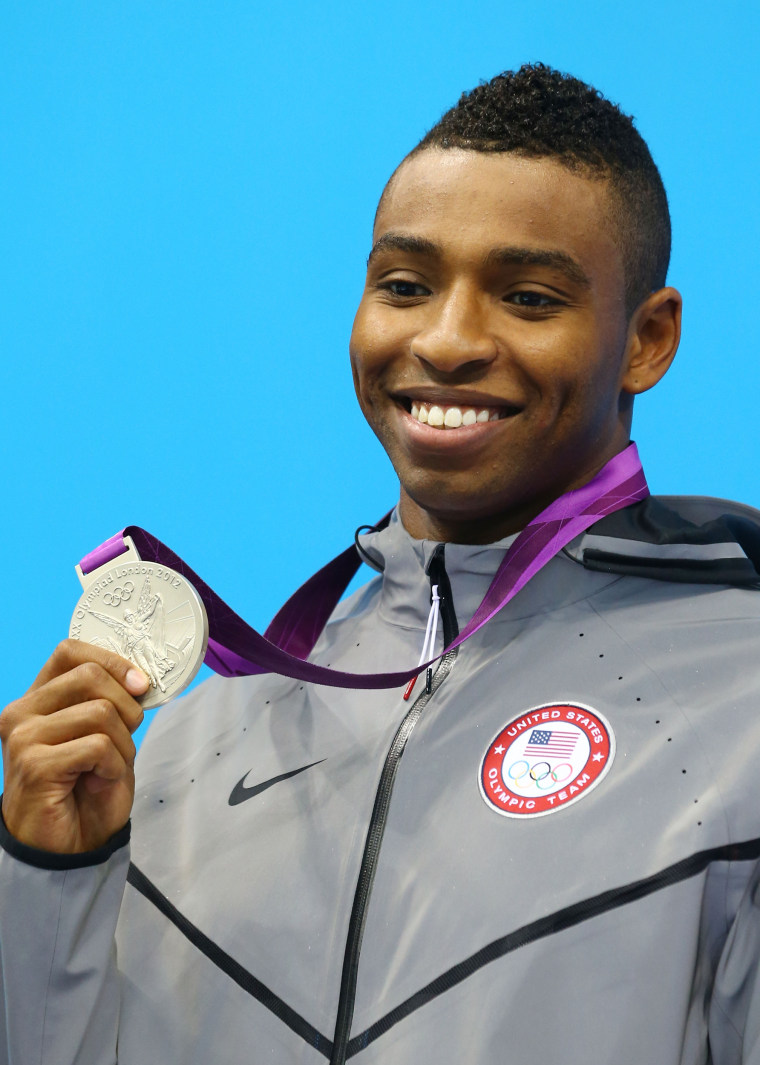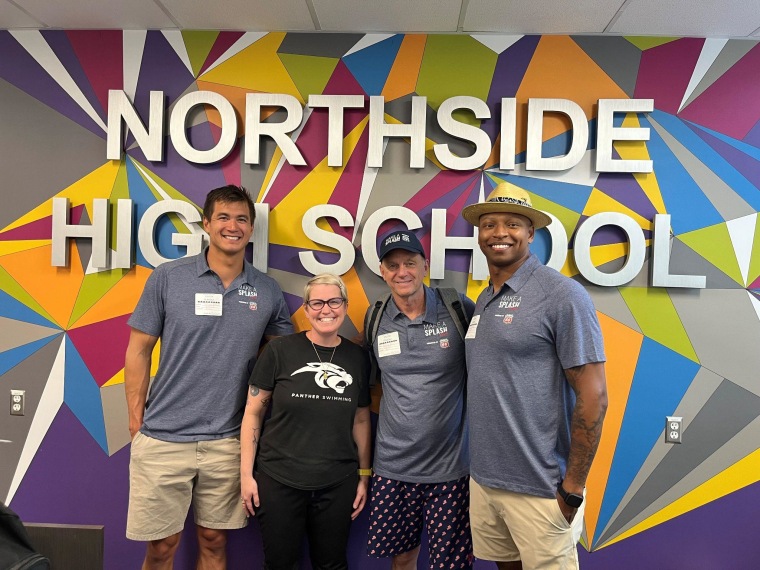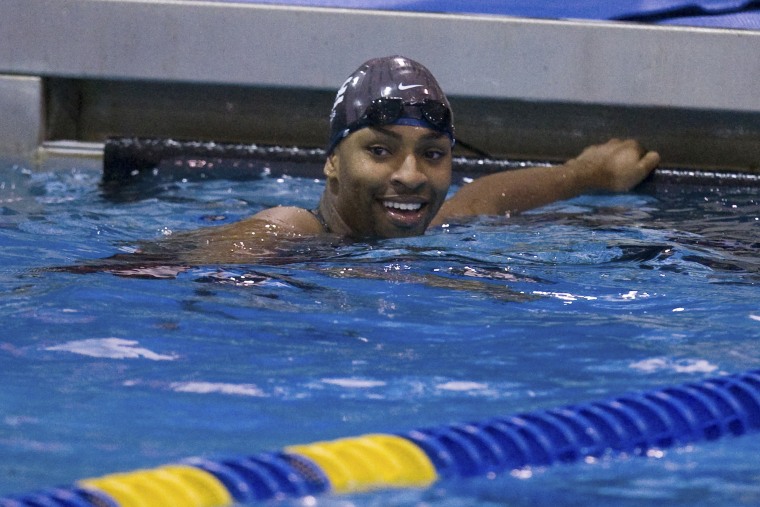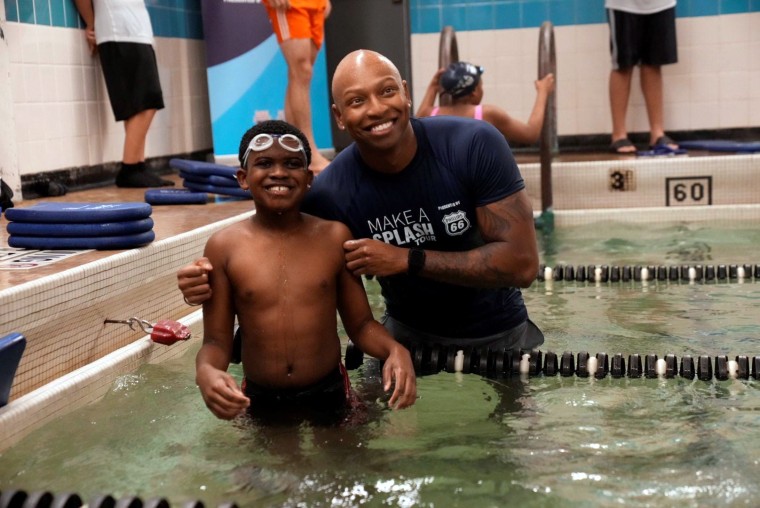When Cullen Jones nearly drowned at age 5 on a Dorney Park water ride in Pennsylvania, it changed his life forever. The event prompted Jones’ parents to sign him up for swimming lessons, a decision, he said, that not only allowed him to conquer his fear of the water but presented opportunities in competitive swimming — even the Olympics.
“I’ve had quite a few people over the years come up to me with different reasons as to why they’re afraid of the water,” Jones said. “And I completely empathize because that was me. I was afraid of the water, to try to get back into the water, let alone to actually try to swim competitively. I found the love at about 8 years old when I saw my first swim meet and looked at my mom and said, ‘This is what I want to do.’”

Jones’ swimming career holds many successes, including becoming the first Black American to hold a world swimming record after competing in the 4 x 100 freestyle during the 2008 Olympic Games in Beijing. Now 39 and living in Charlotte, North Carolina, Jones is giving back by helping children — especially Black children, who are three times more likely to drown — to learn how to swim.
Jones first began giving swimming lessons at 15, when he was a lifeguard in New Jersey and saved more than 10 lives, he said. Now he travels across the country with USA Swimming Foundation’s Make a Splash Tour, educating parents and children on the importance of learning how to swim, with other Olympians, including Elizabeth Beisel and Rowdy Gaines.
Jones, who joined Make a Splash in 2008, said the group has an “auditorium style” conversation with children, along with a free or low-cost, 30-minute swimming lesson. These events have positive ripple effects in communities, because if a person learns how to swim, there’s a high likelihood they will teach someone else how to swim, he said.
“I encourage you to go out there and learn to swim because it’s not just that swimming is a great sport,” Jones said. “It’s a life skill.”

Participating in the tour also reminded Jones about the dangers for nonswimmers in Black communities, he said, referring specifically to one incident in 2010, when six Black teens died after drowning in the Red River in Shreveport, Louisiana. Following the drownings, Jones and his team made an emergency trip to the state where “it was definitely not only the hardest location that we’ve been to, but it was also what solidified why this was important for me,” he said.
“Being able to be there and speak to the family members and to speak to the friends of some of these kids was truly impactful,” Jones added. “That edges into your brain — something that you’ll never forget. And it’s why I’m still doing it 15 years later.”

The incident in Louisiana is an example of the harsh reality for the 64% of Black children who do not know how to swim, stemming from factors of institutional racism, myths and stereotypes about drowning, and an inherited fear of drowning. Oftentimes Black parents transfer their fear of water to their children, a fear Jones said he works to help parents become aware of. Since some people’s physical appearance can deter them from getting into the water, using swim caps or wearing hair in a protective style, like braids, can help, Jones said, and so can choosing less revealing swimwear.
“As soon as you learn how to swim, that is for the rest of your life,” Jones said. “We are trying to save lives here.”
Jones also helps to close the swimming gap through The Black Leadership in Aquatics Coalition, also calledTeam BLAC, a national advisory board within the USA Swimming Foundation’s diversity, equity and inclusion group launched in 2020. The group, whose chair is Olympic medalist Maritza McClendon, provides mentorship and resources for Black swimmers while also ensuring that they feel included. Jones said he joined Team BLAC shortly after he was racially profiled by a police officer while “literally just walking my dog” one evening in Charlotte. During the incident, Jones said he became emotional thinking about what his son may have to experience in the future.
Through the efforts instituted by Team BLAC, Jones said he wants to make sure his son, who is now 3, feels welcome in the sport.
“I’ve had negative experiences with racism throughout my entire career,” he said. “I know he will too, if he decides to swim. But my goal is to make sure that he has a better time than I did. So that if he has a child, he can do the same thing.”

